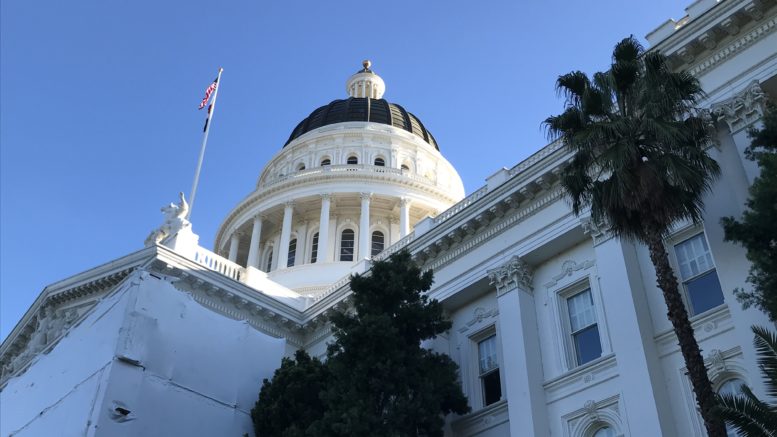Rather than just begging for state crumbs, the city of Sacramento should seek compensation for the city resources and services that the state of California eagerly devours for free.
By Rick Stevenson
The state of California should pay its full and fair share for valuable municipal services that it receives from the city of Sacramento. Because it doesn’t, that worsens the city’s precarious financial situation.
Mayor Darrell Steinberg and City Councilman Steve Hansen have asserted that the state should provide greater funding to Sacramento and that we have been shorted compared to other metropolitan areas of the state, such as the Bay Area and Los Angeles.
Sacramento should receive proportional state funds compared to other cities to address local problems such as homelessness and transportation.
But rather than just begging for those state crumbs, the mayor and council members should also seek compensation for the city resources and services that the state of California eagerly devours for free. Those services include fire and police protection and others paid from the general fund.
The state does not pay property taxes on more than 100 prime blocks in downtown and Midtown, plus land and buildings in other areas. The bill would be in the millions of dollars a year if those parcels were in private hands.
As a result, Sacramento residents are forced to pay higher taxes to subsidize state government. The city is also forced to provide services without receiving property taxes from the county government and federal agencies, with the resulting hit to the city budget.

However, a single state entity is a good citizen. For decades, the Capitol Area Development Authority has voluntarily made “in lieu of tax” payments on revenue-generating downtown and Midtown properties. That precedent of civic responsibility should extend to all state agencies and all state-used properties.
For those payments to happen, the city first must determine the actual cost for providing free services to the state. At my instigation several years ago, John Silva, then the city’s independent budget analyst, agreed with my premise and started the process for a comprehensive study of the situation, and initiated preliminary discussions with a nationally known firm to execute such a study. Unfortunately, his unexpected death in 2017 ended that process and funds for that study were diverted to another use.
That study must now take place. Once it is completed, the mayor and City Council should demand the state pay a “fair share” for uncompensated services. The deadbeat state has helped throw Sacramento into a future of crushing debt, especially when employee pensions and retiree health coverage are added up.
The state has sponged off Sacramento residents far too long.






Thank you for your essay. I bet many people did not know that the state does not pay taxes on its property in Sacramento. The State should pay their fair share.